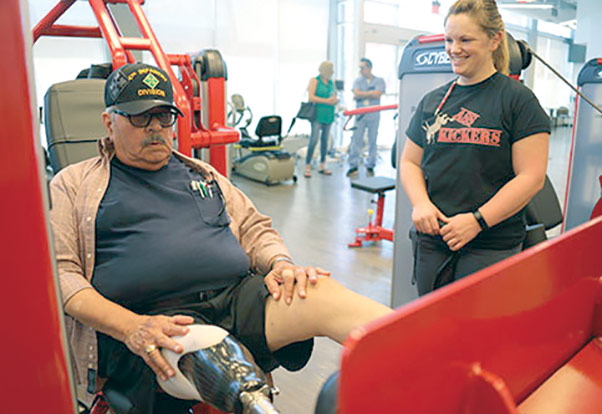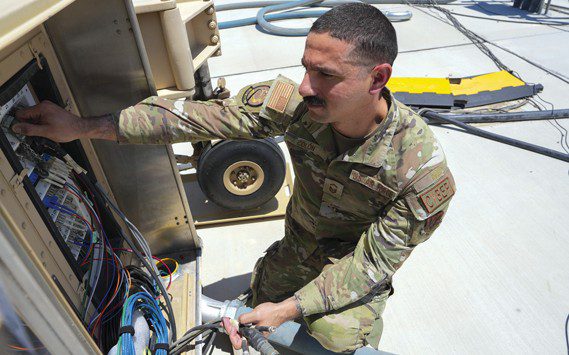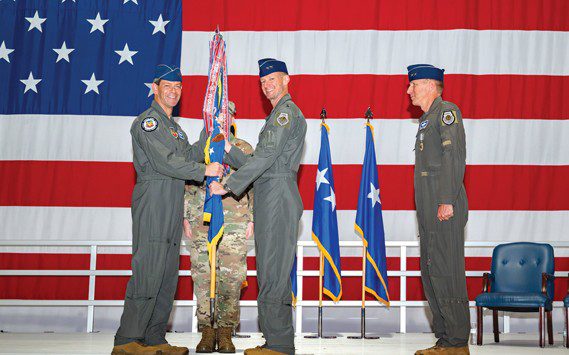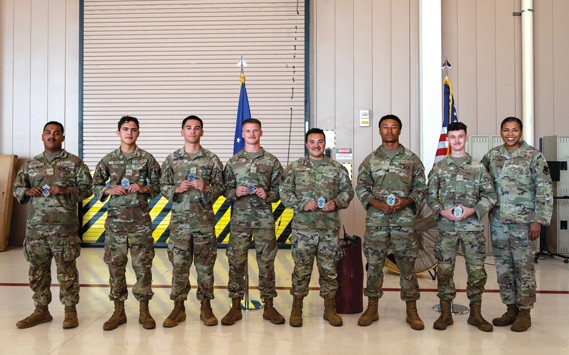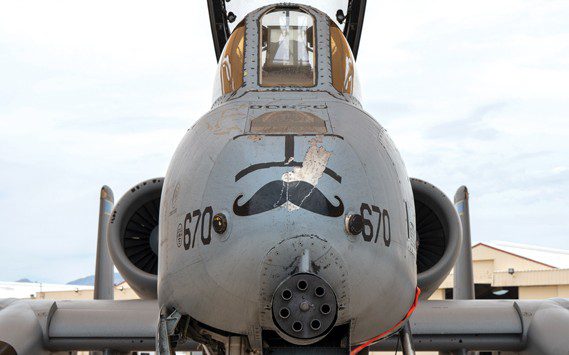When Joseph Curran coaches his fellow Veterans in the gym, his intensity can rival that of some football coaches.
“C’mon, you’ve got this!” Curran barks at Ramiro “R.J.” Garcia as he struggles to finish his last rep on the leg press machine.
Garcia pushes through gritted teeth as he lowers the weight, balancing it between his good leg and his prosthetic. “There you go!” says Curran, congratulating Garcia for finishing his set.
The two U.S. Army veterans are members of an amputee exercise and support group that meets at the VA Southern Nevada Healthcare System kinesiology department each Friday. Due to their boisterous conversations and intense workouts, the veterans have gained quite the reputation.
“They took on the name ’ass-kickers‘ because they are the group known at the VA for making a lot of noise,” said Jessica Blackwell, VASNHS amputee-care specialist in Kinesiotherapy. “Everyone knows when we’re around. They’re a great group of guys, but we mean business. They’ve come to work hard, and that’s how they got the name.”
Blackwell founded the exercise and support group two years ago as a way for amputee veterans to stay physically active and meet others in the same situation. But over time, they have become something closer to a family. “They bonded right away,” she said. “They’ve never had any kind of social group or anywhere they could go to talk about their problems or what they were doing , so having this where they can see each other every week and have something to look forward to has been great.”
At the center of this group is Curran. “Joe is our ringleader,” Blackwell said. “He’s our loudest one, but he takes care of the other guys, making sure that they have the resources they need … he’s actually helping himself in the process.”
Curran relishes his role within the group. “What I do is put a little fire under their butts,” the double amputee said. “These guys in wheelchairs, they won’t get out unless I start pushing them. And I only do it to motivate them, out of respect.”
One of the reasons Curran is able to motivate the veterans, besides his outspoken nature, is that he literally walks-the-walk. After losing both legs from complications, which he attributes to exposure to Agent Orange, VA specialists have helped him to get back on his feet. “First they taught me how to walk on one foot with a walker, how to hobble along. Now I can just walk with a cane. I try to stay out of the chair as much as possible.”
This determination been contagious within the group, and word of mouth has expanded it from two veterans at the first meeting to more than 25 in current sessions. While their Friday clinics officially consist of an hour-long workout, the group often meets up outside of the Medical Center for bowling, golf and other social events. “Before this was created, our guys didn’t really have a reason to put their leg on and go outside,” Blackwell said. “They told me that they would stay at home and sit in their wheelchairs. This has really given them motivation and a sense of community.”
Both physically and mentally, the “Ass-kickers” are saving lives. “I’ve really seen a great turn around with my guys since we started this group,” Blackwell said. “Their health, their psyche, their mood … I’ve seen a lot of improvements.”
“I’ve got a theory,” Curran added. “The average American veteran in a wheelchair is 200 pounds overweight. They’re homebound and often depressed. They’ll live longer if I can get them out of that chair. So that’s my plan: get the veteran off his butt and move!”






